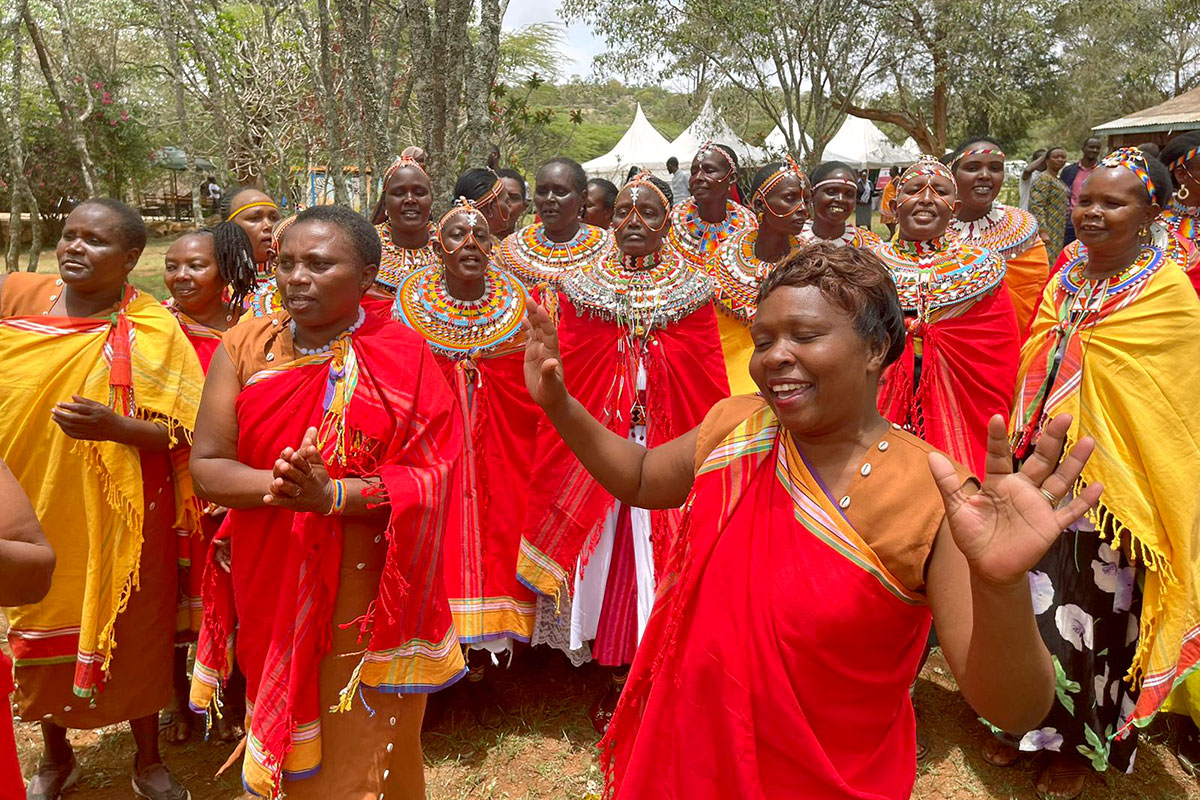Kenya and Zimbabwe invest in preventing violence against women and girls
Date:
In Kenya and Zimbabwe, authorities and civil society groups are using a wide array of tactics to prevent gender-based violence.
As part of UN Women’s Generation Equality Forum Action Coalition on Gender-based Violence, the Government of Kenya and the civil society organization Yes Trust Zimbabwe have each forged their own paths in reducing violence against women and girls.

Yes Trust Zimbabwe
In Zimbabwe, Yes Trust has trained more than 50 local community leaders on best practices for managing and reporting cases of gender-based violence, while also pursuing multimedia projects to raise awareness about the issue. Those leaders have developed multimedia advocacy strategies such as short films, mobile roadshows, festivals, and community radio dialogues to creates spaces for exchange and empower survivors.
“Our approach goes beyond raising awareness; it's about creating spaces for exchange, challenging societal norms, and empowering survivors through tangible initiatives”, says Thina Maphosa, Head of Programmes at Yes Trust. “Investing in women is an investment in a future free from violence.”
The group has established more than 50 groups led by women and girls that conduct programming aimed at educating the public about violence reduction strategies and to empower survivors.
Soneni Moyo, a young feminist advocate who received training through Yes Trust’s programming, said the organization had given her “invaluable skills” on topics including sexual and reproductive health, advocacy, and counselling.
“Through Yes Trust, I now have the skills and knowledge I need to be an effective advocate for our community”, she said. “I am now a gender champion, capable of holding institutions accountable for their actions. The skills I have gained have made me a stronger and more confident person.”
The Government of Kenya
“We believe that empowering women is not just a moral obligation; it's an economic imperative”, said Phoebe Makungu, the Generation Equality Forum focal point at Kenya’s State Department for Gender and Affirmative Action emphasizes.
“Our policy reforms, local initiatives, and strategic investments are laying the groundwork for a society where women thrive, not just as survivors but as active contributors to our nation's progress”, she said.
In coordination with the Generation Equality Forum, the country’s government has rolled out localized programmes targeting gender-based violence in nine towns and counties, including toll-free lines to report gender-based violence and clinics to provide services to survivors.
The government has also supported the Anti-Female Genital Mutilation Board, a UN Women partner. In 2021, a council of elders in the Samburu region signed a declaration committing to champion the end of this harmful practice, and a council in the Mt. Elgon region has committed to signing a similar declaration this year.
In a statement made at its 2021 signing ceremony in Samburu, the Supreme Council of Elders acknowledged that such rites of passage “no longer depicted positive values and norms. They have ended up causing more harm to our girls in the long run”.
“From now, we are going to take measures to protect girls and prevent FGM from taking place in our community”, the statement said.
Looking Forward
In the pursuit of gender equality, investing in women is not only a moral imperative but also an economic necessity.
“We recognize the challenges, but they only fuel our determination”, Maphosa said. “Our multimedia advocacy, community engagement, and empowerment programmes are vital components of a comprehensive strategy to create lasting change.”
Makungu echoes that sentiment, saying, “Empowering women is an investment in our nation's prosperity and strength. Our strides in policy reforms, awareness campaigns, and services aim for a future where every woman can thrive, contributing significantly to a just society resilient against violence.”
At the halfway mark of the Generation Equality campaign, Yes Trust Zimbabwe and the Government of Kenya serve as examples of investing in women and the leadership and collective commitment needed to build a world where women not only survive but thrive.